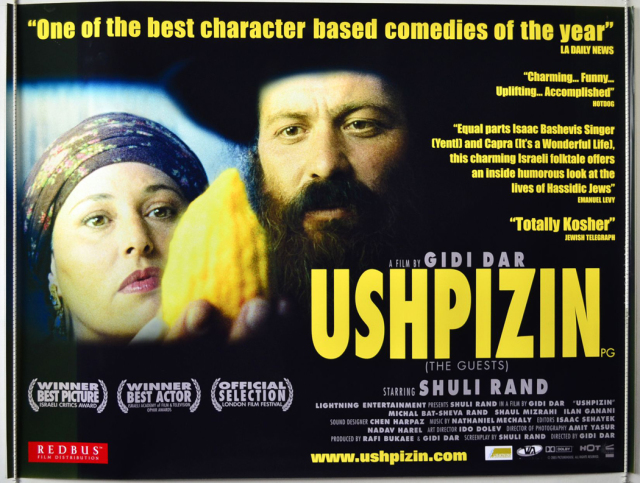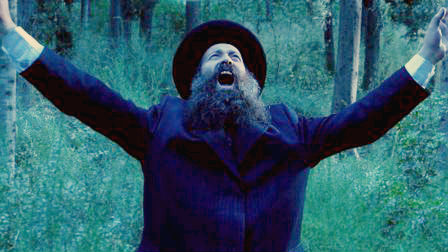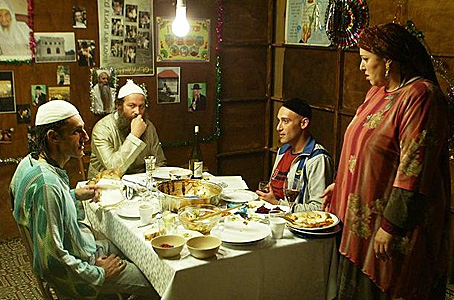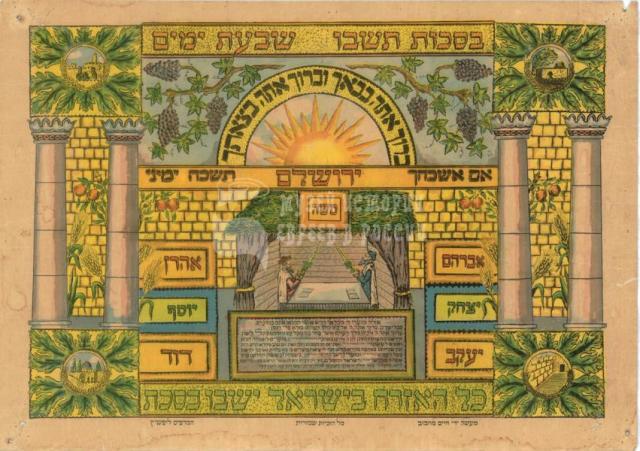Last night, I watched Ushpizin, an Israeli film about Sukkot . I wept. For many reasons that are not easily understood by others.
I feel sad that I do not live in such a religious community where the rabbi studies exclusively. Juxtapose that with my local religious leaders — my bishop and my stake president. They both have jobs to attend to everyday. I believe they receive inspiration and have a good heart; but I recognize that
“…the things of God Are of deep import and time and experience and careful and ponderous and solemn thoughts can only find them out. thy mind O Man, if thou wilt lead a soul unto salvation must stretch as high as the utmost Heavens, and search into and contemplate the lowest considerations of the darkest abyss, and Expand upon the broad considerations of Eternal Expanse, he must commune with God. – (Joseph Smith, while in Liberty Jail)
In the film, you see how “peculiar” these religious people are — in a good way, in a positive way.
Now therefore, if ye will obey my voice indeed, and keep my covenant, then ye shall be a peculiar treasure unto me above all people. . . (Exodus 19:5)
I am supposed to be peculiar. Juxtapose the Hasidic life portrayed in this movie with my own Mormon faith, which is currently reaching out to the world in the movie, Meet the Mormons, to show that we are not that “peculiar” — but good hearted people. In fact, the movie is not about theology.
I believe that I am part of a complicated lineage — that I am Ephraim among the gentiles. I patiently long for Zion, and believe that the Jews are loved by God. And that I have a role in helping to build Zion, as part of the remnant of Joseph.
In the film, Ushpizin, Moshe and his wife, Mali, are Breslov Hasidic Jews. They were once secular, but they have become Orthodox. On the eve of Sukkot, they do not have enough money to pay their bills or buy the necessary items for a proper sukkot. They are also suffering because G_d has not been blessed them with a child.
I wept because Moshe and Mali understand the trials of life — the tests of Abraham and Sarah, and that these sufferings are “all good” (as Avraham Gileadi explained in last week’s seminar on Isaiah and Visions of Glory). Moshe repents and forgives — he asks his neighbor for absolution when he realizes the tabernacle he got for his Sukkot really belonged to him.
They welcome guests to their sukkot and feed them. But the guests are not that great. They are really awful.
By the end of the film, I recognized the theme, which is encoded in the book of Isaiah — the theme that in this life, you go through a descent before an ascent. And somehow, you must find joy in the descent. “It’s all good,” because this is the way you ascend the ladder to G_d. This is how you reach the level of Seraph (a fiery, burning one). It’s not a popular theory in today’s world (where all suffering should be avoided).
Ushpizin was written by Shuli Rand, who plays Moshe in the film. His real wife plays Mali in the film. It’s a classic. If you want to read a little more about it, I recommend this blog: Sepharic Secret.
The film closes with these words in song:
“One must pass in this world with some confusion
Some obstacles, some changes, until he understands
A man has to pass this world on a very narrow bridge
And the truth is sharp like a strand of hair
And the main thing is not to be afraid at all
We’ve got to rejoice and never forget what we really are
There is God.
There’s only God.”




